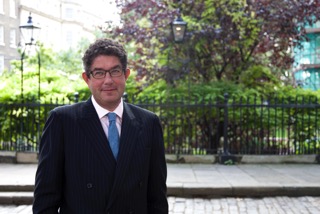Key sports law cases of 2016 - UK & Ireland
Wednesday, 04 January 2017As we begin the new year, we are running a series of articles reflecting on the key legal issues in different jurisdictions and regions around the world.
For this article we have approached some of the leading sports lawyers in the United Kingdom and Ireland to share their views on what they think was the key sports law issue of 2016.
We would like to thank all of the contributors to this article for taking the time out of their busy schedules to share their views with us.
Featured experts:
- Louis Weston, Barrister, 3PB
- Professor Jack Anderson, Queen’s University Belfast
- Nick Bitel, Consultant, Kerman & Co
- Daniel Lowen, Partner, Couchmans LLP
- Jon Walters, Partner, Charles Russell Speechlys LLP
- Keith Oliver, Head of International, Peters & Peters Solicitors LLP
- Gareth Farrelly, Trainee, Peters & Peters Solicitors LLP
- Satinder Hunjan QC, Barrister, 4-5 Gray’s Inn Square Chambers and Kings Chambers.
- Carol Couse,Head of Latin America Desk, Mills & Reeve LLP>
- Genevieve Gordon, CEO, Tactic Counsel Ltd; Programme Lead, De Montfort University, Leicester (DMU)
- Alex Haffner, Managing Associate, Dentons
- Mark James, Director of Research, Manchester Law School
- Jamie Singer, Partner, Onside law
- Andrew Haywood, Partner, Employment, Penningtons Manches LLP
- Jeremy Drew, Head of Sports Law, Partner at RPC
- Nick De Marco, Barrister, Blackstone Chambers
- Jake Cohen, Lawyer, Mills & Reeve LLP
- Alex Kelham, Managing Associate, Sports Business Group, Lewis Silkin LLP
- Cliodhna Guy, Legal Counsel
- Robert McTernaghan BL, Barrister at law, The Bar of Ireland
- Kevin Carpenter, Principal & Consultant, Captivate Legal & Sports Solutions Ltd
- Alfonso Valero, Principal Lecturer, Course Leader – Academic LL.M Programmes, Nottingham Law School
We hope you enjoy the article. If you think there’s anything you would have liked to have seen be mentioned please feel free to tweet us @LawInSport or email us with your suggestions at
Louis Weston
Barrister, 3PB

The sporting issues in the UK and Ireland that have most dominated sport have been the regulation of sport in three areas. First, how does a sports regulator properly safeguard young participants from abuse? Second, how does a sports regulator safeguard the reputation of its sport from corruption by its participants?
Third, how should a sports disciplinary tribunal operate and be governed? The former question arises from the FA’s historical abuse allegations. The second from the betting sports continued fight against race and match fixing, with horse racing, tennis and football both grappling with the complicated issues of stopping horses and/or inside information being used for betting gain. The third from the difficulties the BHA encountered in the Jim Best case. There is the common theme that no regulator however competent or effective can rest on its laurels and must keep under review its procedures, rules and practices to protect the safety of its participants and the integrity of its sport and of its regulation.
Professor Jack Anderson
Queen’s University Belfast
 In a not very sporting context, the Irish poets WB Yeats wrote about heroes as “names that stilled your childish play”. Three of my heroes died in 2016 – Johan Cruyff, Muhammad Ali and Anthony Foley – reminding me that whatever might be litigated off the pitch; it’s the on-pitch talent that truly matters.
In a not very sporting context, the Irish poets WB Yeats wrote about heroes as “names that stilled your childish play”. Three of my heroes died in 2016 – Johan Cruyff, Muhammad Ali and Anthony Foley – reminding me that whatever might be litigated off the pitch; it’s the on-pitch talent that truly matters.
As it was an Olympic year, mention goes to the Rio Games and thus a key sports law moment must be the Russian doping scandal. The Russian doping story highlights so many aspects of sports/doping law: WADA’s oversight of national anti-doping agencies; the role of whistle-blowers and not regulators in revealing the alleged conspiracy; the separation of powers between IOC, WADA and CAS; and the need possibly to reassess the terms on which the “war” on doping in sport is being “fought”.
On the last point, the second McLaren report was particularly voluminous and replete with statistics but one anti-doping statistic released a few weeks before McLaren II stands out for me: in November 2016 WADA announced its 2015 statistics - of 303,369 samples collected by global anti-doping authorities in 2015, 3,809 led to adverse analytical findings for prohibited substances – 1.25%.
Nick Bitel
Consultant, Kerman & Co

The most important decision is sports law in 2016 is strangely probably one that will lead to the least change. In June the Bundesgerichtshof delivered its eagerly expected judgment in the “Pechstein case” and to the relief of the IOC, international federations and many others (but to the consternation of Claudia Pechstein and her backers at FIFPro) confirmed the validity of the international sport arbitration system lead by CAS. The story however may not be over as Pechstein has told the media that she will bring a claim in the Bundesverfassungsgericht, the German constitutional court.
Daniel Lowen
Partner, Couchmans LLP
 One important development during 2016 was the decision of Germany’s Federal Court of Justice to dismiss Claudia Pechstein’s challenge to CAS’ authority. The Court held that the clause at the centre of Pechstein’s challenge, which required athletes charged with anti-doping rule violations to submit to the jurisdiction of the CAS and excluded the jurisdiction of national courts, was consensual and lawful. If Pechstein’s challenge had been successful, the ruling would have materially undermined CAS’ authority, so in that sense it’s a case of the preservation of the status quo having profound significance for sports arbitration. Despite the affirmation of CAS’ authority, there remain calls for meaningful reform to both international and domestic arbitral bodies to safeguard and enhance procedural fairness, which is crucial to the integrity of sport’s dispute resolution processes.
One important development during 2016 was the decision of Germany’s Federal Court of Justice to dismiss Claudia Pechstein’s challenge to CAS’ authority. The Court held that the clause at the centre of Pechstein’s challenge, which required athletes charged with anti-doping rule violations to submit to the jurisdiction of the CAS and excluded the jurisdiction of national courts, was consensual and lawful. If Pechstein’s challenge had been successful, the ruling would have materially undermined CAS’ authority, so in that sense it’s a case of the preservation of the status quo having profound significance for sports arbitration. Despite the affirmation of CAS’ authority, there remain calls for meaningful reform to both international and domestic arbitral bodies to safeguard and enhance procedural fairness, which is crucial to the integrity of sport’s dispute resolution processes.
Jon Walters
Partner, Charles Russell Speechlys LLP
 It almost goes without saying that integrity has been at the heart of most of 2016’s biggest sports law news stories. Russia, the IAAF, the Tennis Integrity Unit, the ongoing clean-up at FIFA: the list could go on. But to narrow that down somewhat, I would highlight the impact of hackers in sport and the interplay with the broader media and government. The Fancy Bears may be the least threatening sounding cyber-espionage group going, but there is no doubt about the nefarious impact of their WADA hack on public trust in sport. The leaks of confidential WADA files subjected many innocent athletes (and presumably some not-so-innocent) to the court of public opinion, fuelled by salacious media reporting and, frankly, misplaced government intervention. It is difficult to see the merit in the recent parliamentary select committee meddling in the Team Sky affair for example, other than to publicise certain members of the Culture, Media and Sport Select Committee. While there has always been and should be a place for informed investigative journalism – David Walsh/Armstrong and Buzzfeed/tennis match fixing being two prime example – the concerning trend towards cyber-leaks, blanket media coverage and government interference threatens the autonomy and primacy of the traditional sports regulatory process.
It almost goes without saying that integrity has been at the heart of most of 2016’s biggest sports law news stories. Russia, the IAAF, the Tennis Integrity Unit, the ongoing clean-up at FIFA: the list could go on. But to narrow that down somewhat, I would highlight the impact of hackers in sport and the interplay with the broader media and government. The Fancy Bears may be the least threatening sounding cyber-espionage group going, but there is no doubt about the nefarious impact of their WADA hack on public trust in sport. The leaks of confidential WADA files subjected many innocent athletes (and presumably some not-so-innocent) to the court of public opinion, fuelled by salacious media reporting and, frankly, misplaced government intervention. It is difficult to see the merit in the recent parliamentary select committee meddling in the Team Sky affair for example, other than to publicise certain members of the Culture, Media and Sport Select Committee. While there has always been and should be a place for informed investigative journalism – David Walsh/Armstrong and Buzzfeed/tennis match fixing being two prime example – the concerning trend towards cyber-leaks, blanket media coverage and government interference threatens the autonomy and primacy of the traditional sports regulatory process.
Keith Oliver
Head of International, Peters & Peters Solicitors LLP
Gareth Farrelly
Trainee, Peters & Peters Solicitors LLP
As 2016 draws to a close, football fans of all persuasions will be looking forward to festive celebrations and the emotional trauma associated with the customary highs and lows of their chosen passion. One cannot look past Sam Allardyce’s 67 day reign as England manager. It would appear he is suitably rehabilitated (or soon will be) and watching with interest where his next role will be - dependent on results over this period.


However, the boardrooms and legal directorates of several clubs will also be nervously awaiting the outcome of the ongoing investigations regarding the historical abuse of many young footballers whose careers have been blighted by the serial mistreatment ofthose clubs’
would be starlets. Only time will tell whether the Game’s gatekeepers and all those charged with the running of our national sport will together expose those responsible and belatedly bring them to justice, while at the same time ensuring that adequate compensation is paid to those who may never recover from what happened. Those at the centre of the footballing world owe those players – whoever they may be – a duty that runs beyond legal obligations. It is difficult to imagine what these young people will have gone through whilst embarking on what many assume to be a dream career.
Satinder Hunjan QC
Barrister, 4-5 Gray’s Inn Square Chambers and Kings Chambers.
 A year like no other!
A year like no other!
An astonishing year raising profound challenges going to the very heart of the governance and credibility of sport.
Worryingly, unprecedented exclusion of teams of athletes as a result of “doping” issues at the Rio Olympics, FIFA and its leadership, the suspension of Maria Sharapova and the year ending with disturbing and emerging widespread evidence of “abuse” over many years in the world of football.
More positively, British number one tennis player with huge implications for the development of tennis, the premiership thriving and with increasing overseas interest in the purchase of football clubs and in particular from India and China, and as I found when I was in Rio for the Olympics, despite everything, the Olympic spirit very much alive.
Carol Couse
Head of Latin America Desk, Mills & Reeve LLP
 The child abuse scandal that football is currently facing and the legal fall out from this, particularly from any criminal prosecutions and The FA inquiry, (and potentially the national child abuse inquiry if football abuse cases come within its remit). Following this, will clubs who have employed or engaged the alleged perpetrators of abuse be held liable for purportedly failing in their duty of care to youngsters in their charge? And if any clubs have sought to avoid legal action and negative publicity regarding allegations against their coaches, by entering into settlement agreements (with confidentiality clauses), will these come to light and how far can a contract protect aclub in these circumstances?
The child abuse scandal that football is currently facing and the legal fall out from this, particularly from any criminal prosecutions and The FA inquiry, (and potentially the national child abuse inquiry if football abuse cases come within its remit). Following this, will clubs who have employed or engaged the alleged perpetrators of abuse be held liable for purportedly failing in their duty of care to youngsters in their charge? And if any clubs have sought to avoid legal action and negative publicity regarding allegations against their coaches, by entering into settlement agreements (with confidentiality clauses), will these come to light and how far can a contract protect aclub in these circumstances?
Further, it is unlikely that this problem is football specific, given the Sports Minister has requested that more than 40 sporting governing bodies consider whether there are any historical allegations of abuse in their sports.
Long term, this is likely to entail an overhaul of safeguarding policies and procedures to ensure that children are indeed protected and thrive in their chosen sport.
Genevieve Gordon
CEO, Tactic Counsel Ltd; Programme Lead, De Montfort University, Leicester (DMU)
 Undoubtedly 2016 has been a mixed year with much to rejoice over but sadly much to ponder. The biggest media controversy in my opinion has come toward the end of the year with the football and child abuse accusations. This is without question a sad affair and made more real for me when the penny dropped to check in with home for obvious reasons. It was not a call I wanted to make but one on reflection I should have made a lot sooner. Likely to be colleagues top pick; however mine is because at last we can act responsibly within sport as a whole and no longer pretend it is immune: Football won't be ignored when many other sports have been in the past. Many legal questions will be asked and no doubt the collective will be required to question for the law and academia how far the clubs are themselves liable. The social and moral changes in society have already been questioned and clubs will be expected, rightly so, to be ever vigilant. How this will impact upon grassroots sport I suspect will take a while. Hopefully parents will be more keen to participate than use sport as a babysitting service. Parents, legal guardians and carers have a legal and moral responsibility to ensure the safety of their charges and should ask more questions of people we entrust our children to regardless of the sport and the standard. An interesting conversation with a premiership coach led me to consider the wider sports cultures and their different set ups. Suffice to say academies should now have a large part to play in restoring faith in all the sports that will be scrutinised. We should be under no illusion that football is alone.
Undoubtedly 2016 has been a mixed year with much to rejoice over but sadly much to ponder. The biggest media controversy in my opinion has come toward the end of the year with the football and child abuse accusations. This is without question a sad affair and made more real for me when the penny dropped to check in with home for obvious reasons. It was not a call I wanted to make but one on reflection I should have made a lot sooner. Likely to be colleagues top pick; however mine is because at last we can act responsibly within sport as a whole and no longer pretend it is immune: Football won't be ignored when many other sports have been in the past. Many legal questions will be asked and no doubt the collective will be required to question for the law and academia how far the clubs are themselves liable. The social and moral changes in society have already been questioned and clubs will be expected, rightly so, to be ever vigilant. How this will impact upon grassroots sport I suspect will take a while. Hopefully parents will be more keen to participate than use sport as a babysitting service. Parents, legal guardians and carers have a legal and moral responsibility to ensure the safety of their charges and should ask more questions of people we entrust our children to regardless of the sport and the standard. An interesting conversation with a premiership coach led me to consider the wider sports cultures and their different set ups. Suffice to say academies should now have a large part to play in restoring faith in all the sports that will be scrutinised. We should be under no illusion that football is alone.
Alex Haffner
Managing Associate, Dentons
 For me a key evolving issue for sports bodies over the course of the past 12 months is the threat of so-called "rebel" leagues and competitions. Many sports still have a structure in place whereby the same body/corporate group oversees both regulatory and commercial aspects. Inevitably when commercial organisations come along claiming to be able to offer a better end product to consumers than the federation/organisation in question (and persuade participants in the sport they would do better to join the new league or competition), this tends to cause something of a dilemma as to whether or not to engage with them. Where the federation/organisation does so, the legal risk is that, should they not follow due process, they leave themselves open to legal challenge, particularly through the operation of the competition law
For me a key evolving issue for sports bodies over the course of the past 12 months is the threat of so-called "rebel" leagues and competitions. Many sports still have a structure in place whereby the same body/corporate group oversees both regulatory and commercial aspects. Inevitably when commercial organisations come along claiming to be able to offer a better end product to consumers than the federation/organisation in question (and persuade participants in the sport they would do better to join the new league or competition), this tends to cause something of a dilemma as to whether or not to engage with them. Where the federation/organisation does so, the legal risk is that, should they not follow due process, they leave themselves open to legal challenge, particularly through the operation of the competition law
We're seeing this play out more and more in sports as diverse as show jumping, speed skating and basketball. I can't see the problem going away any time soon.
Mark James
Director of Research, Manchester Law School
 The biggest story, and the one that could have the most impact on British sport, are the allegations of historic sexual abuse coming out of football. It is unlikely to be only football that is affected by these claims, as has been seen with gymnastics in the USA. Already, hundreds of people have contacted the police whilst others have tried to play down the behaviour of some of the people at the centre of the allegations. Coupled with suspected cover-ups and pay-offs, this story will continue throughout the next few years with the potential for a range of criminal and civil actions to be brought. In particular, with the developments in vicarious liability in Mohamud v WM Morrison Supermarkets plc [2016] UKSC 11 and other related cases in 2016, the clubs at the centre of the allegations, and possibly even the governing bodies, could face major claims against them.
The biggest story, and the one that could have the most impact on British sport, are the allegations of historic sexual abuse coming out of football. It is unlikely to be only football that is affected by these claims, as has been seen with gymnastics in the USA. Already, hundreds of people have contacted the police whilst others have tried to play down the behaviour of some of the people at the centre of the allegations. Coupled with suspected cover-ups and pay-offs, this story will continue throughout the next few years with the potential for a range of criminal and civil actions to be brought. In particular, with the developments in vicarious liability in Mohamud v WM Morrison Supermarkets plc [2016] UKSC 11 and other related cases in 2016, the clubs at the centre of the allegations, and possibly even the governing bodies, could face major claims against them.
Jamie Singer
Partner, Onside law
 In my view, the Maria Sharapova meldonium saga is particularly interesting. Sharapova is probably the most high-profile sportswoman on the planet and for her to test positive for a banned substance was a huge story for sport in general, not just tennis. It was fascinating to see how the story developed throughout the year. We began with a mea culpa and a simple acceptance that she had not checked the new banned substance list for 2016, she was responsible for what was in her body and would accept the consequences for her breach of the doping rules. As the year progressed, and she appealed her initial two-year ban, defence morphed to offence as she attacked the ITF’s notification procedures. The story became less her failure to make herself aware of the rules but the ITF’s failure to adequately notify her of changes.
In my view, the Maria Sharapova meldonium saga is particularly interesting. Sharapova is probably the most high-profile sportswoman on the planet and for her to test positive for a banned substance was a huge story for sport in general, not just tennis. It was fascinating to see how the story developed throughout the year. We began with a mea culpa and a simple acceptance that she had not checked the new banned substance list for 2016, she was responsible for what was in her body and would accept the consequences for her breach of the doping rules. As the year progressed, and she appealed her initial two-year ban, defence morphed to offence as she attacked the ITF’s notification procedures. The story became less her failure to make herself aware of the rules but the ITF’s failure to adequately notify her of changes.
CAS clearly had some sympathy for her arguments when reducing her ban, although they confirmed she had infringed the rules and was at fault (if not “significant fault”). However, this was not the story that caught the headlines. The power of the celebrity PR machine, supported by sponsors such as Head, meant the impression given was that she was an innocent party wronged by the ITF. Whereas less high-profile athletes are simply remembered as “drug cheats”, Maria and her advisers appear to have managed 2016 in such a way that 2017 will see her return to the game with her reputation intact. Perhaps a lesson to us all as to how advice in the modern media world, with its short attention spans and lack of detail, needs to address more than just the letter of the law.
Jeremy Drew
Head of Sports Law, Partner at RPC
 2016 has been full of surprises, both in and out of sport. Following the 2015 revelations concerning FIFA, corruption, bribery and general integrity issues at the highest levels of sport have continued to dominate the biggest stories this year including football, cycling and others. From a UK perspective, we have seen for example the "football for sale" scandal, which started with the FA having to embarrassingly agree to Sam Allardyce's resignation after just one game in charge. Allardyce resigned after allegedly appearing to offer to help undercover journalists circumvent the FA's third party ownership rules. The reports cast into light issues concerning undercover journalism, the impact of surreptitious recordings and data protection. However, perhaps the biggest issue it highlights is the question of whether more effective regulation is needed in sport, given the large sums of money that are frequently changing hands that can lead to corruption and the damage that corruption can cause to the enjoyment of the fans without whom there is nothing.
2016 has been full of surprises, both in and out of sport. Following the 2015 revelations concerning FIFA, corruption, bribery and general integrity issues at the highest levels of sport have continued to dominate the biggest stories this year including football, cycling and others. From a UK perspective, we have seen for example the "football for sale" scandal, which started with the FA having to embarrassingly agree to Sam Allardyce's resignation after just one game in charge. Allardyce resigned after allegedly appearing to offer to help undercover journalists circumvent the FA's third party ownership rules. The reports cast into light issues concerning undercover journalism, the impact of surreptitious recordings and data protection. However, perhaps the biggest issue it highlights is the question of whether more effective regulation is needed in sport, given the large sums of money that are frequently changing hands that can lead to corruption and the damage that corruption can cause to the enjoyment of the fans without whom there is nothing.
Andrew Haywood
Partner, Employment, Penningtons Manches LLP
 Looking back at 2016 where does one start, the downfall of Blatter and his side kick, Platini, is always worth a mention, the Russian drugs doping scandal and the numerous fallouts and consequences that have followed as a result (and continue to) and, seeing the world of football breathe a sigh of relief following the decision in the Heinz Müller case are but a few of the highlights. Closer to home, however, I thought Tony Pulis’ claim against his former club Crystal Palace was of note and had an uncanny resemblance to the claim Crystal Palace brought against Ian Dowie back in 2007. Dr. Eva Carneiro's claims against Chelsea and Jose Mourinho yet again highlighted that discrimination remains prevalent within sports and, of course, it would be remiss of me not to mention Brexit although the net impact on our international sportsman and respective sports is yet to fully appreciated.
Looking back at 2016 where does one start, the downfall of Blatter and his side kick, Platini, is always worth a mention, the Russian drugs doping scandal and the numerous fallouts and consequences that have followed as a result (and continue to) and, seeing the world of football breathe a sigh of relief following the decision in the Heinz Müller case are but a few of the highlights. Closer to home, however, I thought Tony Pulis’ claim against his former club Crystal Palace was of note and had an uncanny resemblance to the claim Crystal Palace brought against Ian Dowie back in 2007. Dr. Eva Carneiro's claims against Chelsea and Jose Mourinho yet again highlighted that discrimination remains prevalent within sports and, of course, it would be remiss of me not to mention Brexit although the net impact on our international sportsman and respective sports is yet to fully appreciated.
Nick De Marco
Barrister, Blackstone Chambers
 2016 was another year dominated by integrity issues in sport – from the corruption fallout in FIFA and the IAAF, to betting scandals in tennis, an increase in doping cases and the child abuse scandal of English football, as well as the manufactured scoop that wasn’t a scoop about football transfers. Most of these scandals highlight something many of us have been saying for a while: that it’s often the sports’ governing bodies themselves that have proven themselves incapable of regulating sports properly, and there is an even greater need for independent regulation and systems of arbitration that are fair to participants in the sport.
2016 was another year dominated by integrity issues in sport – from the corruption fallout in FIFA and the IAAF, to betting scandals in tennis, an increase in doping cases and the child abuse scandal of English football, as well as the manufactured scoop that wasn’t a scoop about football transfers. Most of these scandals highlight something many of us have been saying for a while: that it’s often the sports’ governing bodies themselves that have proven themselves incapable of regulating sports properly, and there is an even greater need for independent regulation and systems of arbitration that are fair to participants in the sport.
There have been a growing number of football disputes arising from FIFA’s de-regulation of football agents, and the recent Court of Appeal case, McGill v SEM demonstrates the extent of the common law in the absence of regulation.
Two football cases to watch out for early in 2017, in which I act for the participants, are Leeds United & Mr Cellino’s appeal against an FA ban and combined half million pound fine relating to a transfer and agents’ fees, and the FA’s disciplinary case against Joey Barton for breach of its betting rules; but there shall be many more throughout the year.
Jake Cohen
Lawyer, Mills & Reeve LLP

Perhaps the biggest impact on UK, and particularly Premier League clubs, will be the potential loss of what is known as the “EU/EEA exception” to Article 19 of the FIFA Regulations on the Status and Transfer of Players. Article 19 states that, as a general rule, international transfers cannot be completed until the player turns eighteen years old. However, Article 19.2(b) contains an exception for transfers between EU/EEA clubs (jurisprudence has since extended this exception beyond clubs to include players at clubs outside the EU/EEA, but who hold EU/EEA citizenship), which reduces the age limit from eighteen to sixteen.
There are hundreds of players at Premier League academies and in first teams who first joined clubs at age sixteen and seventeen by virtue of this exception. This exception is fundamental to how top Premier League clubs acquire young, talented and cost-effective players. Investing in talented young players is football’s ultimate low-risk, high-reward player acquisition strategy and the loss of this exception will simultaneously weaken Premier League clubs while providing a considerable recruitment advantage to top European clubs with similar scouting and financial resources. Should Premier League clubs lose this exception (and unless the UK joins the EEA, it is very likely they will), top European clubs will have an additional two-year window to recruit and acquire the best young talent in Europe.
Additionally, the loss of the Article 19 exception will make it more difficult for Premier League clubs to qualify non-UK players as “homegrown” for the purposes of UEFA competitions (Champions League, Europa League), which could lead to squad selection and depth issues in the future.
Alex Kelham
Managing Associate, Sports Business Group, Lewis Silkin LLP
 2016 was a year of highs and lows for the sports world. However, on reflection it seems that there were more lows than highs, with scandals (primarily doping and integrity related) generating some sensational headlines. The year saw some reputations in sport ripped to shreds, while the legal framework tried (with varying degrees of success) to mop up the mess behind the scenes. The position of sponsors when their endorsees’ behaviour was called into question was also brought into sharp focus. For example, when Maria Sharapova failed a drugs test in January the subsequent reactions of her sponsors were heavily scrutinised. In particular, the backlash when Sharapova’s racquet supplier, Head, opted to stand by her will have got the media execs at big-brand sponsors thinking strategically about how to deal with similar situations.
2016 was a year of highs and lows for the sports world. However, on reflection it seems that there were more lows than highs, with scandals (primarily doping and integrity related) generating some sensational headlines. The year saw some reputations in sport ripped to shreds, while the legal framework tried (with varying degrees of success) to mop up the mess behind the scenes. The position of sponsors when their endorsees’ behaviour was called into question was also brought into sharp focus. For example, when Maria Sharapova failed a drugs test in January the subsequent reactions of her sponsors were heavily scrutinised. In particular, the backlash when Sharapova’s racquet supplier, Head, opted to stand by her will have got the media execs at big-brand sponsors thinking strategically about how to deal with similar situations.
Cliodhna Guy
Legal Counsel
 Biggest issues that faced sport in 2016 related mainly to governance and integrity. The McLaren Report has raised a number of issues which will take considerable time to address - if they can be addressed. In addition to McLaren we had the various revelations about other sporting bodies such as FIFA and then the arrest of Patrick Hickey during the Rio Olympic Games. Public perception of sport has been seriously damaged by the various "scandals" and it will require increased transparency and governance by sporting bodies at all levels to try and repair the damage. While this was more at an international level it has seriously impacted sports at a national level across the board and especially in Ireland. Media interest has focused on the lack of medals achieved during Rio and with the fallout in the Olympic Council of Ireland from the arrest and investigation into ticket management.
Biggest issues that faced sport in 2016 related mainly to governance and integrity. The McLaren Report has raised a number of issues which will take considerable time to address - if they can be addressed. In addition to McLaren we had the various revelations about other sporting bodies such as FIFA and then the arrest of Patrick Hickey during the Rio Olympic Games. Public perception of sport has been seriously damaged by the various "scandals" and it will require increased transparency and governance by sporting bodies at all levels to try and repair the damage. While this was more at an international level it has seriously impacted sports at a national level across the board and especially in Ireland. Media interest has focused on the lack of medals achieved during Rio and with the fallout in the Olympic Council of Ireland from the arrest and investigation into ticket management.
Funding continues to be a huge issue for all sports and what criteria should determine the percentage funding any sport receives. The recent reaction to UK Sport funding announcement may lead to further questions on the process down the line.
From an athlete side, the resistance to Rule 40 was clear pre Rio Olympic Games and it will be interesting to see how this develops and what position is going to be taken by the various parties.
Robert McTernaghan BL
Barrister at law, The Bar of Ireland

In general, 2016 has been a monumental turning point for the world in general but with regards to the area of sports law it can only be seen as a tectonic year. We had the latest saga in the Pechstein cases, with the highest civil court restoring supreme jurisdiction to the Court of Arbitration for Sport this summer, the Panama papers, the Russian doping scandal that with it came many sports law cases in the run up to the Olympics and Paralympics, the Irish Olympic Council ticket scandal in Rio and the upsetting developments around historical allegations within the FA’s of sexual abuse both in the UK and in Ireland.
Kevin Carpenter
Principal & Consultant, Captivate Legal & Sports Solutions Ltd
 Globally the anti-doping movement has been through a dramatic, and indeed traumatic, year in 2016. However in the UK, which in the past has been viewed as a leading light in the anti-doping movement, has seen its credibility attacked. Both the National Anti-Doping Organisation (NADO) UK Anti-Doping (UKAD), and one of the greatest success stories in modern UK sport the cycling team Team Sky, have found themselves hauled before Parliamentary committees to answer awkward questions and defend their commitment (in reality) to clean competition. Investigations and questioning are still ongoing, but having been the darling of the fight against doping, the tide has undoubtedly turned against the UK.
Globally the anti-doping movement has been through a dramatic, and indeed traumatic, year in 2016. However in the UK, which in the past has been viewed as a leading light in the anti-doping movement, has seen its credibility attacked. Both the National Anti-Doping Organisation (NADO) UK Anti-Doping (UKAD), and one of the greatest success stories in modern UK sport the cycling team Team Sky, have found themselves hauled before Parliamentary committees to answer awkward questions and defend their commitment (in reality) to clean competition. Investigations and questioning are still ongoing, but having been the darling of the fight against doping, the tide has undoubtedly turned against the UK.
Alfonso Valero
Principal Lecturer, Course Leader – Academic LL.M Programmes, Nottingham Law School
 In the same year that a number of governance issues have been exposed (to ban or not to ban the Russian Olympic Committee; abuse of young players in football; WADA-leaks), the not-so-new sport sector, eSports, has also been riddled by scandals. Perhaps they didn’t make it to the mainstream media, but it still exposed the difficulties of governing and monitoring a sport which is owned, governed and commercialised by the same operator (rings a bell?). Match fixing and illegal betting have rocked the sport in at least two of the games launched which were followed by sanctions, but there are obvious problems. Firstly, the rule book, which is not unified amongst the publishers (which control the games); secondly, monitoring compliance is perhaps even more challenging in an electronic sport; finally, enforcement of those rules, as a ban does not always mean being prevent from playing the sport. Even more importantly, is the public really scandalised?
In the same year that a number of governance issues have been exposed (to ban or not to ban the Russian Olympic Committee; abuse of young players in football; WADA-leaks), the not-so-new sport sector, eSports, has also been riddled by scandals. Perhaps they didn’t make it to the mainstream media, but it still exposed the difficulties of governing and monitoring a sport which is owned, governed and commercialised by the same operator (rings a bell?). Match fixing and illegal betting have rocked the sport in at least two of the games launched which were followed by sanctions, but there are obvious problems. Firstly, the rule book, which is not unified amongst the publishers (which control the games); secondly, monitoring compliance is perhaps even more challenging in an electronic sport; finally, enforcement of those rules, as a ban does not always mean being prevent from playing the sport. Even more importantly, is the public really scandalised?
- Anti-Doping Arbitration Athletics Boxing Court of Arbitration for Sport (CAS) Cycling Data Dispute Resolution Employment Esports European Union FIFA Football Governance International Association of Athletics Federations (IAAF) International Olympic Committee (IOC) International Tennis Federation (ITF) Ireland Olympic Paralympic Player Welfare Regulation Rio 2016 Sponsorship United Kingdom (UK) World Anti-Doping Agency (WADA)

 Global Summit 2024
Global Summit 2024